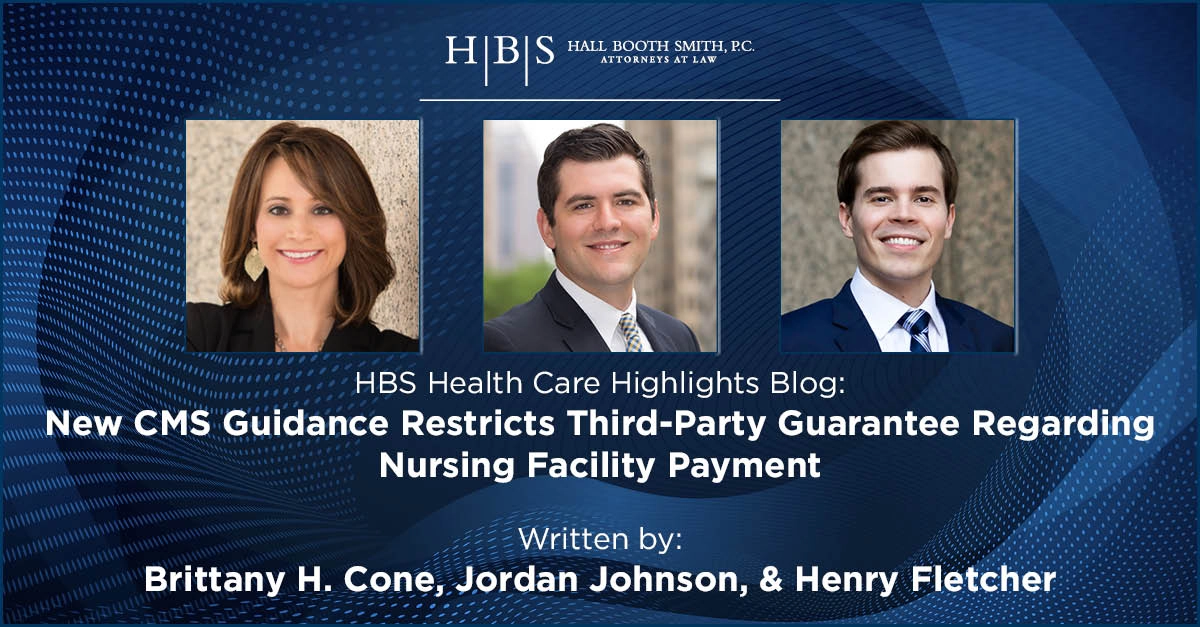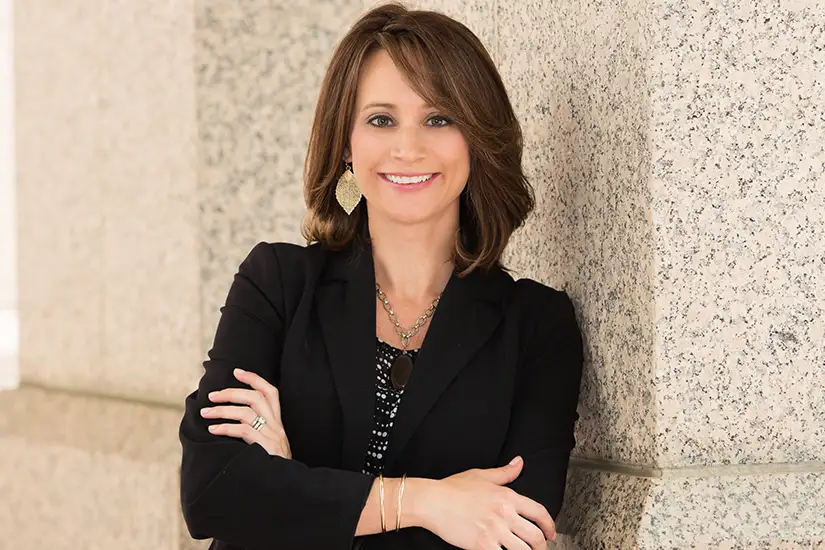
New CMS Guidance Restricts Third-Party Guarantee Regarding Nursing Facility Payment
Background
On November 18, 2024, the Centers for Medicare & Medicaid Services (CMS) issued new guidance related to the prohibition against admission agreements containing language requesting or requiring a third-party guarantee of payment. Within its guidance, CMS provides that any language in admission agreements that seeks to hold an individual besides the resident personally liable for an outstanding balance owed to the nursing facility may be noncompliant. Language may be noncompliant even if the word “guarantee” is not used. In its guidance, CMS provides several examples of noncompliant language:
- Language that holds both (1) the resident and (2) the representative or other individual jointly responsible for any sums due to the facility (however, language that holds the resident solely responsible is permitted).
- Language that holds the representative or other third-party individual personally liable for breach of an obligation in the admission agreement, such as (1) failing to apply for Medicaid in a timely and complete manner or (2) allowing someone other than a signatory to the agreement to spend the resident’s resources that would be used to pay the nursing facility.
- Language that does not specifically mention a third-party guarantee but implies the resident could be discharged if the representative does not voluntarily agree to personally pay to prevent the discharge.
- Language that holds the representative or other individual personally liable for any amounts not paid to the facility in a timely manner because the representative or other individual did not provide accurate financial information or notify the facility of changes in the resident’s financial information.
CMS clarifies in its guidance that noncompliant language cannot be present in the primary documents used as admission agreements or in other documents signed at admission, nor can facilities use such language in agreements regarding a resident’s continued stay. While requiring a third-party guarantee is not allowed, facilities may request or require a resident representative who has legal access to the resident’s resources to sign a contract, without incurring personal liability, to provide facility payment from the resident’s resources.
It is important to note that CMS clarifies that third-party payors, such as insurance companies, are not considered third-party guarantors.
Effective Date
Surveyors will begin using this new CMS guidance to determine compliance with requirements beginning March 24, 2025. The goal of this delayed date is to allow time for nursing facilities to amend admission documents and properly train admissions personnel.
Potential Implications
With the newly issued CMS guidance, nursing facilities must carefully review the language used in admission and continued care agreements. Any provisions requiring a financial guarantee from someone other than the resident are now unenforceable.
To mitigate risks associated with this change, nursing homes can still enter into agreements with a resident’s legal representative who has access to the resident’s financial resources without imposing personal liability, thereby adding an extra layer of protection against unpaid balances, albeit one that lacks a meaningful enforcement mechanism. Additionally, facilities can implement more robust pre-admission screening processes to identify residents who may face payor source challenges over time. As a result of this guidance, nursing facilities may need to utilize other legal actions against residents or their estates to recover outstanding balances.
If you need assistance preparing for the implementation of the third-party guarantee restrictions, please reach out to our Aging Services and Health Care teams.
Disclaimer
This material is provided for informational purposes only. It is not intended to constitute legal advice nor does it create a client-lawyer relationship between Hall Booth Smith, P.C. and any recipient. Recipients should consult with counsel before taking any actions based on the information contained within this material. This material may be considered attorney advertising in some jurisdictions. Prior results do not guarantee a similar outcome.
Blog Overview
About the Author
Brittany H. Cone
Partner | Atlanta Office
T: 404.586.6620
E: bcone@hallboothsmith.com
Brittany H. Cone focuses her practice on a wide range of regulatory, administrative, and litigation matters in health care. Certified in Health Care Compliance by the Health Care Compliance Association, she works with providers on the full spectrum of issues they face including Medicare, Medicaid, regulatory compliance, administrative hearings, and appeals.
Jordan Johnson
Partner | Atlanta Office
T: 404.586.6639
E: jjohnson@hallboothsmith.com
Jordan Johnson specializes in aging services and health care matters. His practice features a wide range of regulatory, administrative, and litigation matters, including the full spectrum of issues healthcare providers face such as reimbursement, regulatory compliance, and administrative hearings and appeals.
Henry Fletcher
Attorney at Law | Atlanta Office
T: 678.539.1611
E: hfletcher@hallboothsmith.com
Henry Fletcher is an associate in our Atlanta office, focusing his practice on health care and aging services matters.
Formerly a summer associate with HBS, Henry also externed at the United States Department of Health and Human Services in the Office of the General Counsel, and was a litigation and regulatory legal extern at The Coca-Cola Company.






Leave a comment
You must be logged in to post a comment.